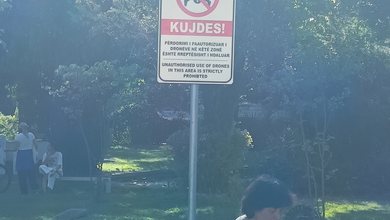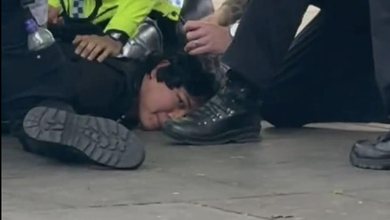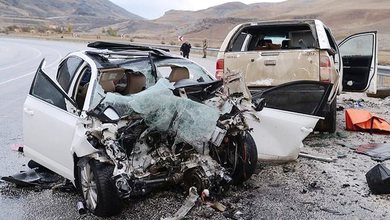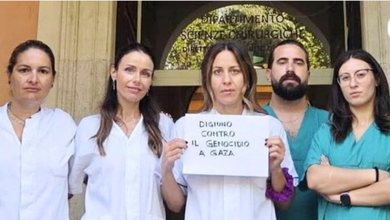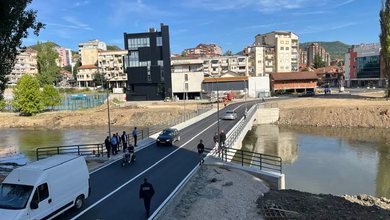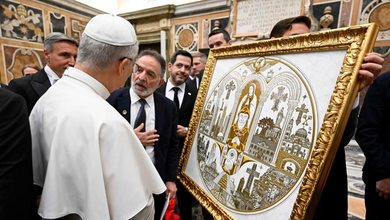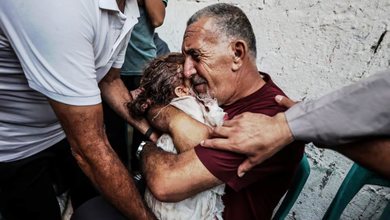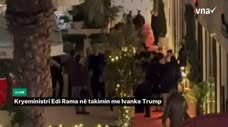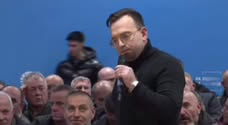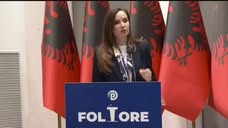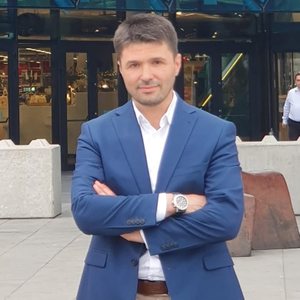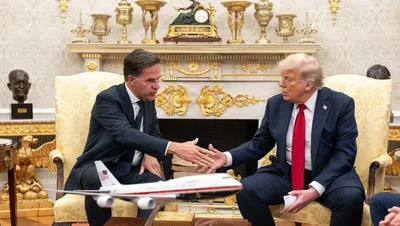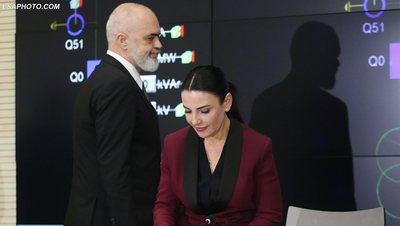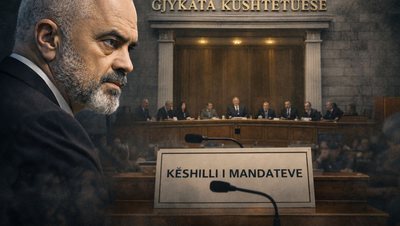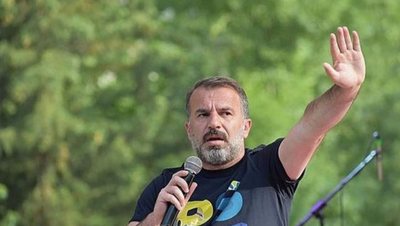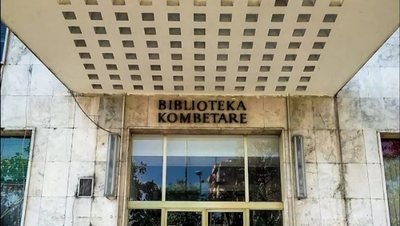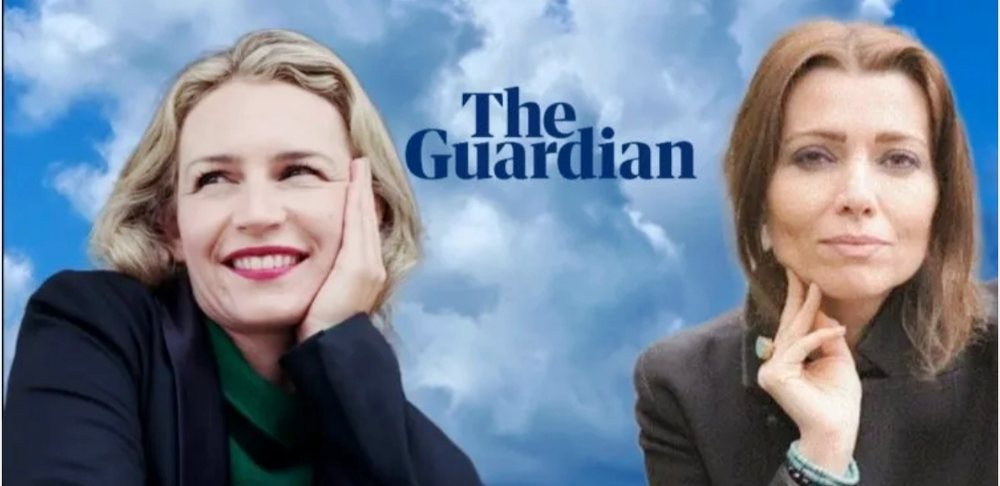
The Albanian author of the book "Free" and the Turkish writer discuss the rise of populism, censorship - and how today's conflicts stem from the raw traumas of the past.
Lea Ypi won international awards for her book Free, a memoir of her life in Albania before and after the communist regime. Her new book, Indignity, reconstructs the life of her grandmother, who moved to Tirana from Thessaloniki as a young girl and became deeply involved in the country's political life. She currently holds the Ralph Miliband Chair in Politics and Philosophy at the London School of Economics.
Elif Shafak, a Turkish writer, is the author of more than 20 books, including the novel 10 Minutes 38 Seconds in This Strange World (shortlisted for the Booker Prize) and most recently, There Are Rivers in the Sky.
When the two writers spoke via video, Ypi was in India and Shafak was in London. The topics touched on censorship, the rise of populism, the challenges of being a writer with multiple identities, and the importance of representing complex stories in literature.
Elif Shafak (ES): We are in an age of anxiety. There is so much uncertainty, both in the East and in the West, both among the young and the old. I think this is the golden age for populist demagoguery: when someone comes out and says, “Leave it to me, I will simplify your life.”
Lea Ypi (LY): What strikes me is the contrast between the rich life in literature and academia – full of experimentation, variety, complexity – and the banality of politics. In politics, everything becomes simplified, summarized, even exclusive. Political discourse says: let's get rid of the immigrants, as if social justice can only be achieved in a homogeneous society.
ES: We also need to talk about censorship, not just that which comes from outside or from above, but also about self-censorship. I come from a place where words are heavy. Anything you write – about sexuality, gender, memory, history – can offend the authorities.
For example, when I published The Bastard of Istanbul, which dealt with the Armenian genocide, I faced trial and could have been sentenced to three years in prison. Even the words of fictional characters were used as evidence. They burned my picture, they called me a traitor.
Later, two of my books were investigated for “moral outrage”: 10 Minutes 38 Seconds…, because it involves a sex worker, and The Gaze, because it deals with child abuse in a country where “child brides” still exist.
But to write, you have to forget all of that. If you start thinking: "Will they be offended?" – you can't write a single line.
LY : Growing up in Albania and the transition from communism to capitalism made me very sensitive to propaganda. There was no clear division between a free world and an oppressed world – censorship and ideological manipulation are always there, even when they come from seemingly innocent sources.
In Albania we have a saying: "Istanbul burns and the old woman gets burned." Sometimes you feel like what you do is unimportant. But our job is to criticize, to remember, and to remind others that the past shapes the future. Today's conflicts are just old, unhealed wounds.
ES: We have a lot in common – the themes, the geographies, the silences we dig into. Memory for us is not about getting stuck in the past, but about enabling healing.
LY: When I was writing Indignity about my grandmother, I found it very difficult to find sources for a woman who lived in the 1920s–1930s. She grew up in Thessaloniki, in an environment that was still Ottoman, but had just become part of the Greek state. The archives were filtered according to what the authorities wanted to show.
History is always written by the powerful. Only when literature becomes an act of resistance can it challenge this.
ES: Being a writer is a bit like being a linguistic archaeologist – you dig into layers of stories and oblivion. The Ottoman Empire was multi-ethnic and multilingual, but the way it is taught in schools is empty: filled with nationalism and imperial nostalgia. Nobody talks about women, about prostitutes, about concubines, about minorities like Jews, Kurds, Greeks, Armenians. That’s where the silence begins.
LY: Literature has a democratic function only when it does not preach. When it tries to say “This is right, this is wrong,” it loses its power. The book does not end when the author writes it – it continues to be “written” through the reader, through the debate it arouses in society.
When Free came out, I was sent a photo of President Erdogan holding the book during an Armenia-Azerbaijan peace summit. It was uncomfortable – because I know how I wrote it and what it’s about. But that’s part of the “life of the book.”
I also have a dual relationship with the fact that I am labeled as “the writer who writes about Albania, communism, totalitarianism.” But for me, Albania is a point from which you can reconstruct the world: Durrës was a Roman city, first Hellenic, then Byzantine, Venetian… Within 100 square meters there are thousands of years of European history.
When I hear the debates about joining the EU, I think: When have we ever been outside Europe?
ES: Being a Turkish writer, a woman, is a difficult experience. There are more layers of misogyny and patriarchy. I don't want to be pessimistic, but it's the reality: you get slapped on one cheek and kissed on the other – because readers read, stories matter. Especially in countries where democracy is fading, literature and art become even more important.
LY: I don't know if it's a depressing sign of the times that the cultural debate is so rich, while politics goes in the opposite direction – simplification, exclusion. How is it possible that we're not finding a bridge between the two?
ES: I never forget that I am an immigrant in Britain, but I also strongly believe in multiple identities. I am Turkish, but England has given me a lot. English has given me a sense of “home” – I have been using it for over 20 years. I cannot deny that. I want to think of myself as a citizen of the world, which populists despise – they tell us that “if you are a citizen of the world, you are not a citizen of anywhere”. I want to challenge that. It is wrong.
We are in an incredibly complex and interconnected era: from climate crises, to pandemics and inequalities, we are all connected.
The Guardian/ Interview by Alex Clark
Indignity: A Life Reimagined by Lea Ypi is published on September 4 by Allen Lane. There Are Rivers in the Sky by Elif Shafak is published by Viking.


